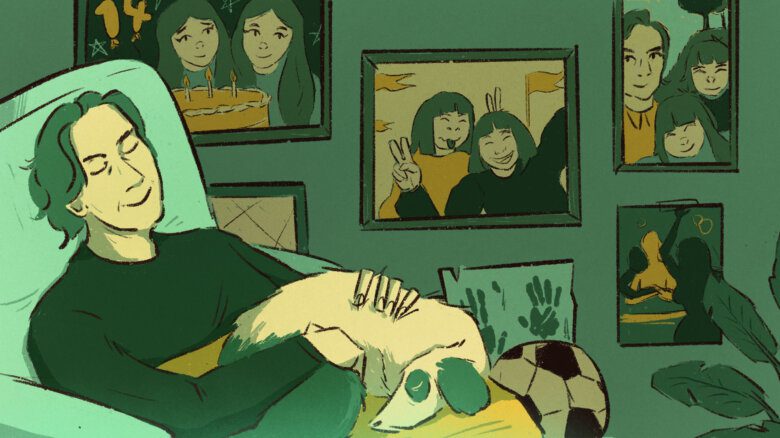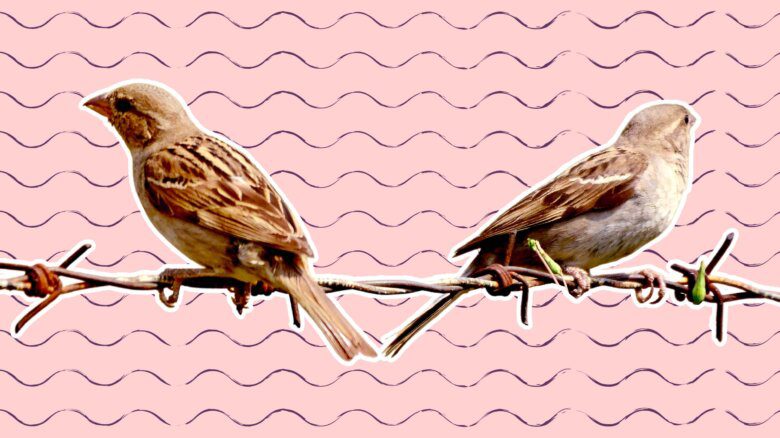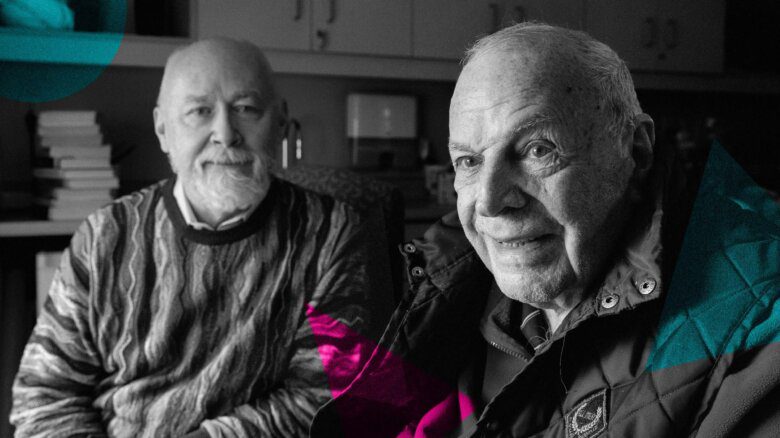“Ask Kai: Advice for the Apocalypse” is a column by Kai Cheng Thom to help you survive and thrive in a challenging world. Have a question? Email askkai@xtramagazine.com.
Dear Kai,
I’m curious to hear your perspective on the tension between having boundaries and the need to accept that we all have different personalities and ways of being. Personally, I’m a bit wry, sardonic and quick to poke fun. I like to express affection through lighthearted teasing, and I often filter my feelings through a bit of joshing or ribbing. I get along easily with others who relate in the same way, and have a number of really great relationships with people where we banter back and forth. While I like to joke around, I think many people would also say that I’m empathetic and that I have serious regard for the feelings of others. I have no trouble forming close emotional bonds with people and regularly assume the role of the confidante or advice-giver in my friendships. (Also, I’m a trans woman, if that adds any flavour to your analysis.)
Recently, I saw some people I know from queer and leftist circles online saying that it’s toxic to relate to others in the way that I do—that it exhausts people and crosses boundaries and, in some cases, is described as violence. Of course, I’ve had moments in my life where I’ve taken jokes too far or have mistakenly crossed a boundary, and I’ve taken these cases seriously and have apologized. (Apologizing is something I’ve gotten better at with age, and my growth has been informed by many mistakes along the way.)
I’ve had more than one friend tell me that I need to stop engaging with them in this way—no joking, teasing or banter. These tend to be people who describe their relationship styles as gentle, tender, soft, etc. I guess that’s where my question lies—at what point is the issue less about boundaries and more about accepting that others relate differently? In order to honour these requests, I would have to fundamentally shift the way I relate to that person, to drastically alter how I communicate. This would require constant, effortful filtering.
When this has come up in the past, I have a frank, compassionate conversation with the friends in question about how we likely just aren’t very compatible as friends, but I’ve heard through the grapevine that this can leave people feeling like I’m not compelled by their boundaries and emotional needs. On the flip side, I kind of feel like they’re telling me that they only want to be friends with a very specific not-quite-existent version of me. What do you think?
Sincerely,
Prickly Pear
Dear Prickly Pear,
There’s a simple answer and a nuanced answer to your question, and I’ll give you the simple one first: for the love of gay god(dess), please never surrender your sense of humour in exchange for friendship with humourless people! There is little enough laughter in this cold, cruel world, and it is my unshakable belief that wit, sarcasm and sharp-edged laughter are inextricably woven into the foundations of queer culture and queer resilience. Making fun of things is how our people survived long centuries of oppression, and we find evidence of that in the legacies of drag performance, queer literature, theatre and more. In the decade I spent as a counsellor for trans teenagers, I spent hundreds of hours cracking up to the horrifically dark jokes that my clients spouted off every 30 seconds, and I defy any tender-identified person to tell me that our laughter wasn’t both emotionally bonding and deeply therapeutic.
You phrase your question as wanting to explore the tension “between having boundaries and accepting that we all have different personalities and ways of being.” The truth is, Prickly, that a true understanding of boundaries is accepting that we all have different personalities and ways of being, and we have neither the right nor the power to try to change someone else’s personality in order to conform with our preferences. What we have the right to do is decide whether or not—and to what degree—we want to be in a relationship with someone based on how we feel about their company.
In sum? Boundaries go both ways, Prickly. People don’t have to be friends with you if they don’t want to be teased, and you don’t have to change your personality just to get along with people who don’t get you. To be very up front, I find the subcultural phenomenon of labelling sarcasm and banter as wholesale “toxic” kind of immature and joyless, and if I were you, I am not sure I would want to be friends with those people anyway! I suspect that you can find more fun, and better relationships, elsewhere.
So, that’s the simple answer, and I will admit that it comes from the crabby old trans lady part of me who likes to shake her fist at the internet and say, “Back in my day, a real transsexual knew how to take a joke!” Of course, there’s a nuanced answer too, and it involves remembering to be compassionate (ugh) in the face of coping strategies that are very different from your own. It also involves remembering that the most beautiful and meaningful relationships are those that challenge us to transform and grow in the interest of being kinder and more loving to one another.
“I must point out that ‘tenderness’ has a toxic side too.”
The nuanced answer says that in a world where queers have been historically ridiculed and dehumanized, it makes sense that some folks would respond by reclaiming humour and sarcasm as a cultural form, while others would respond by rejecting that style of socializing completely. Even aside from systemic forms of oppression, humour has a hurtful and unhealthy side: for some people, the habitual return to banter and irony is a way of evading heartfelt conversation, which leaves their loved ones feeling emotionally abandoned. For others, humour is a sneaky way of releasing hidden anger in the form of “jokes” that are actually veiled insults or accusations (which is truly a very uncool way to behave). To compound this, certain forms of neurodiversity can also make sarcasm and ironic humour extremely difficult to understand. If you have heard that your jokes sometimes come across as avoidant or mean from multiple people, Prickly, it might be worth considering whether your compassion is always coming through in the way you think it is.
Yet, in the name of nuance, I must point out that “tenderness” has a toxic side too. “Softness” and “gentleness” are extremely socially subjective, and when we behave as though anyone who doesn’t conform to a strict set of norms that revolve around our personal preferences is committing harm or “violence,” what we are actually doing is exerting a form of hidden bullying over those around us. The truth is that no one is owed tenderness, and acting as though we are entitled to everyone around us self-monitoring and filtering in the extreme is neither respectful nor conducive to healthy relationships.
I’m going to be extra spicy here and throw in a social observation that the social norms around “tenderness” often contain racial, gender and class elements that are important to track. In the dominant culture, the identity stereotype most likely to be associated with “softness” and “gentleness” as virtues is that of white middle-class people, particularly white middle-class cisgender women. On the flip side, trans women and racialized people (particularly Black folks) are often stereotyped as being loud, aggressive and dangerous. So, yes, Prickly, your being a trans woman definitely does add flavour to my analysis!
So, what is the nuanced thing to do when you are partial to witty banter and joking and someone whom you might like to be friends with prefers straight-up earnestness? Healthy, deep relationships need to be able to accommodate a range of forms of self-expression. I would say that both parties here need to do some self-reflection around compromise and personal growth.
You, Prickly, might learn how to be even more sensitive than you already are with your use of humour and find ways to share laughs that are less likely to offend. You might also do some thinking about when your use of humour might actually be preventing deeper conversation, especially when the person you’re with is shyer or less able to navigate banter. On the other side, your hypothetical “soft” friend could work on metaphorically stretching themself, learning how to sense the difference between a hurtful joke and one that just doesn’t feel funny, and getting into the spirit of play.
All of the above, however, is contingent on mutual respect and appreciation. The relationship has to start from a respectful place—without one party labelling the other as “toxic” or violent just because of the way they like to talk. If the friendship is all about one person changing just to fit the other’s needs, then I would personally question the quality of that relationship.
When people invite you into a friendship, Prickly, you should certainly consider their emotional needs and boundaries. You should also observe whether they are considering yours. I would also suggest asking yourself whether it actually feels joyful to spend time with this person. Friendship is supposed to be, among other things, fun (at least it was back in my day). Does being friends improve the quality of both your lives? Do you get to be yourselves, in the sense of feeling fully accepted while also challenged to grow and change for the better? Or has your time together become about fulfilling emotional obligations, walking on eggshells, monitoring your speech, all in the name of meeting some vague standard of being a good person? Where’s the fun in that?
Kai Cheng Thom is no longer a registered or practicing mental health professional. The opinions expressed in this column are not intended or implied to be a substitute for professional medical advice, diagnosis or treatment. All content in this column, including, but not limited to, all text, graphics, videos and images, is for general information purposes only. This column, its author, Xtra (including its parent and affiliated companies, as well as their directors, officers, employees, successors and assigns) and any guest authors are not responsible for the accuracy of the information contained in this column or the outcome of following any information provided directly or indirectly from it.


 Why you can trust Xtra
Why you can trust Xtra


